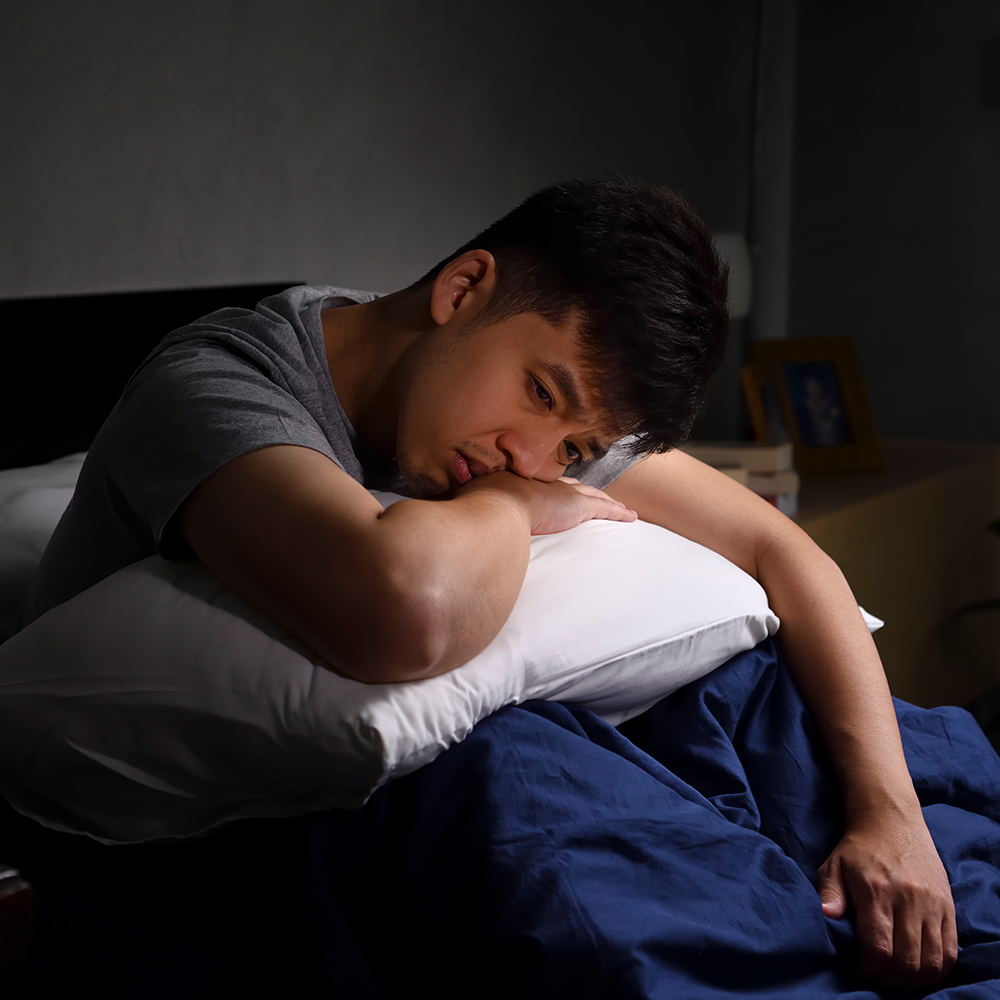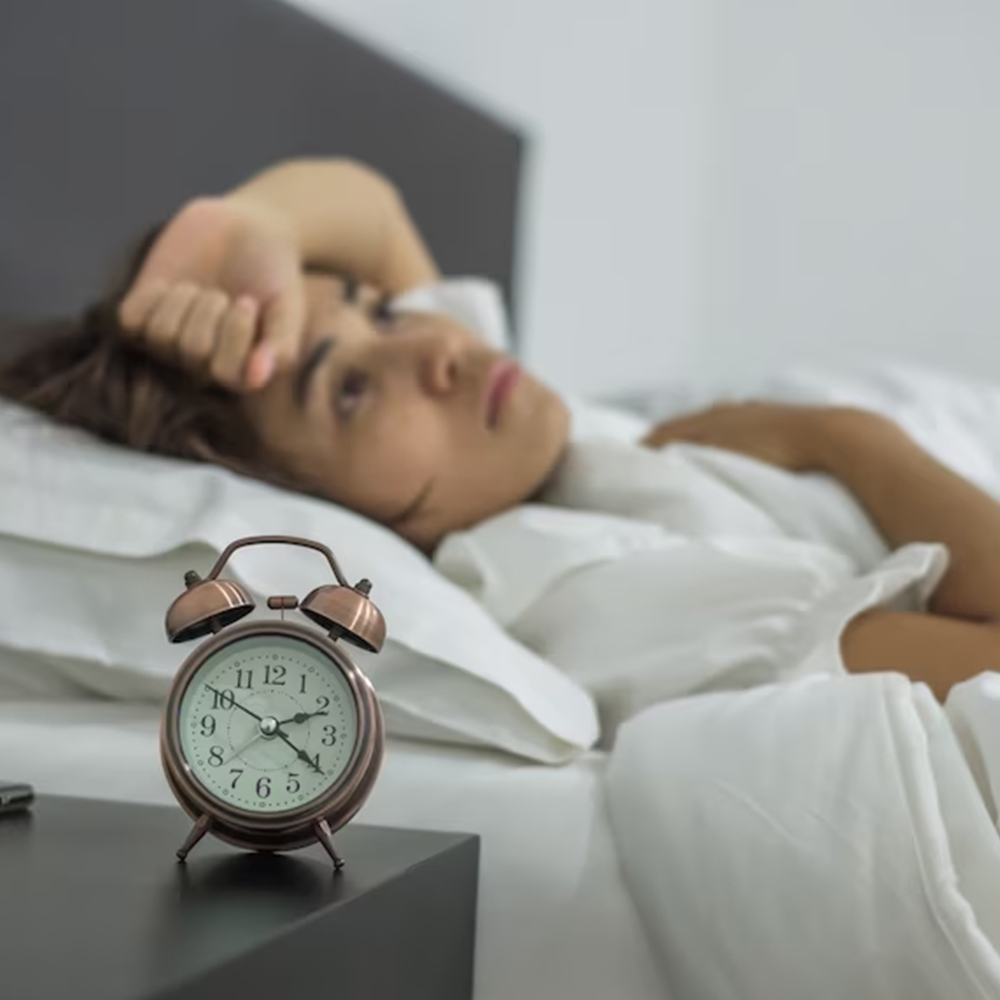
Fast paced life and with ever increasing work demand it’s almost right to say that most individuals struggle to get a good night’s sound sleep. High levels of stress matched with health issues like excessive weight all contribute to further loss of sleep. Loss of sleep further translates into increased lethargy and in-activeness. Research also indicates that improper sleep results in weight gain.
Types of Common Sleep Problems

Sleep issues can significantly impact a person’s general health and quality of life. There are numerous reasons behind the difficulty in sleeping that people encounter. Here are some most common sleepless problems:
- Insomnia
Insomnia means having trouble falling or staying asleep. In addition to daily exhaustion, irritation, and difficulties concentrating, people with insomnia frequently feel unsatisfied with their sleep.
- Snoring Apnea
In sleep apnea, your breathing repeatedly stops and resumes while asleep. This respiratory disruption might cause frequent nighttime awakenings and cause excessive daytime sleepiness.
- Restless Leg Syndrome
RLS is a neurological condition that results in unpleasant leg sensations, frequently described as tingling or crawling. The temptation to move the legs becomes overwhelming at night when these sensations usually worsen, making it difficult to sleep.
- Narcolepsy
A persistent neurological condition called narcolepsy is marked by extreme daytime tiredness and unexpected sleep bouts. Uncontrollable sleep episodes are a common symptom of narcolepsy, which can be risky in some circumstances.
- Parasomnias
The term “parasomnias” refers to aberrant sleep-related actions or sensations. They can include night terrors, sleepwalking, sleep talking, and eating disorders associated with sleep.
- Rhythmic Circadian Disorders
Circadian rhythm abnormalities, such as jet lag, shift work disorder, and delayed sleep phase syndrome, can also be one of the reasons for not getting sleep.
Signs and Symptoms of a Sleepless Problem
Depending on the individual sleep condition, signs and symptoms of sleep difficulties can take many different forms. However, a few widespread symptoms and indicators could point to why you have problems sleeping at night.
- Trouble falling asleep within a reasonable time after bed.
- Frequent nighttime awakenings and trouble falling back asleep
- Excessive daytime sleepiness and constant exhaustion
- If you constantly feel worn out, unrefreshed, or unwell-rested when you wake up.
- Being irritable, having mood swings, and feeling more anxious and depressed may indicate disturbed sleep.
- Lack of sleep makes it generally harder to focus, remember things, and function.
- Loud snoring, gasping for air, or breathing pauses can all be signs of sleep apnea.
What are the Causes of Sleeplessness?

Both adults and babies might experience sleep problems for a variety of reasons. However, the following are some typical reasons for sleeplessness.
Adult Sleeping Problems
- High stress, worry, and anxiety levels can make it difficult to unwind and sleep. In addition, a busy mind and racing thoughts can prevent falling asleep.
- Chronic insomnia, defined by trouble falling or staying asleep, can be brought on by underlying medical disorders, medications, caffeine or alcohol usage, poor sleep patterns, and other things.
- Sleep patterns can be disturbed and difficult by certain sleep conditions, for example- sleep apnea, RLS, narcolepsy, etc.
- Several illnesses, including chronic pain, respiratory problems, digestive problems, hormone imbalances, and neurological diseases, can cause sleep problems.
- Certain antidepressants, stimulants, and corticosteroids, among others, can make it difficult to fall asleep. Alcohol, nicotine, and caffeine can also interfere with sleep cycles.
- External variables like snoring partners, bright lights, uncomfortable temperatures, and disturbing sleeping environments can all impact sleep quality.
Infant Sleeping Problems
- Infants may associate specific circumstances or behaviours (such as being rocked to sleep, fed, or sucking on a pacifier) with falling asleep.
- Newborns commonly wake up throughout the night to be fed.
- During critical developmental milestones, such as teething, learning to crawl, or separation anxiety, infants may experience disturbed sleep.
Self-help for Trouble Sleeping

You can use several self-help techniques if you are trying to find out, ‘Why am I not able to sleep at night?’. Here are a few suggestions:
- Regular Sleep Schedule
Try going to bed and getting up at a set time every day. It encourages a more regular sleep pattern and assists in regulating your body’s internal clock. However, it’s common to wake up during the night, whether you have a sleep issue or not. Try some relaxation techniques if you’re having problems falling asleep again.
- Establish a Peaceful Bedtime Routine
Establish a calming routine to tell your body it’s time to wind down before night. It could involve relaxing activities like reading a book, having a warm bath, meditating, or listening to soothing music.
- Use Self Control
Avoid using electronics, ingesting caffeine, and smoking before bed because these activities might disrupt sleep.
- Regular Exercise
Exercise can help you sleep better. But avoid doing it close to bedtime, as it might excite your body and make it difficult to fall asleep.
- Manage Stress
Find healthy strategies to manage stress since too much stress might make you unable to sleep. Practice stress-relieving techniques, including mindfulness, journaling, talking to a supportive friend or relative, or, if necessary, getting professional assistance.
Improving Your Sleep Patterns with a Health and Wellness Coach

Wanting to work on sleep pattern but being unable to chart out how to can be simplified by working with a Health and Wellness Coach. You can work on managing your stress, sleep, nutrition and exercise. Coaches will work in a holistic manner to help you identify the root cause of your sleep issue and co-create a road map for you in order to make changes in your lifestyle behavior habits that might be hampering your good night sleep.
Health and wellness coach use various tools to understand sleeping and related behavior pattern. They can also help you to know how much sleep is required by you to be functioning optimally, listening to your body clock becomes a great area to work on with your coach. You will be taught and trained to adopt lifestyle modifications that will encourage you to create a positive relationship with sleep and will help you get over sleepless nights.
A Health and Wellness coach will teach you innovative ways of getting sound sleep, where you will be able to shift your mindset and imbibe behaviors like better time management, good sleep hygiene, improved sleep environment, correct diet and often certain relaxation techniques for a overall healthy and well you.
Read More


